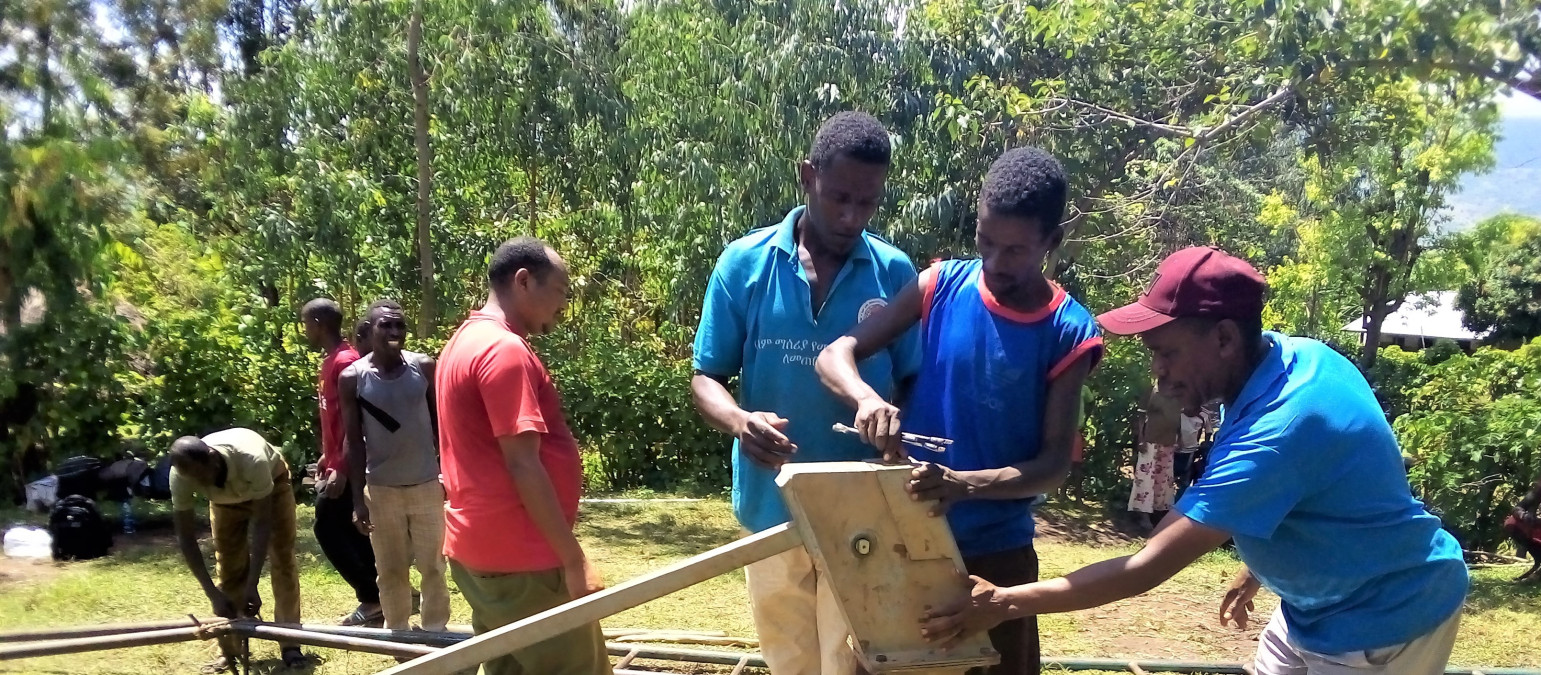Combatting COVID-19 in Ethiopia
Published: May 14, 2020 Reading time: 3 minutes Share: Share an articleThere have been 272 confirmed cases of COVID-19 in Ethiopia as of May 14, 2020. While the outbreak initially affected the capital city, it has begun spreading to Ethiopia’s most remote communities. A weak healthcare system and limited capacity to contain the virus are likely to increase the severity of COVID-19 in the country. With many still reeling from recent outbreaks of yellow fever, cholera, and desert locusts, COVID-19 has the potential to cause unprecedented harm. As such, a robust response is critical, including support to healthcare providers and engagement with the community, particularly in rural areas where awareness of the disease remains low.

People in Need (PIN) is reaching out to the most vulnerable and exposed communities in Ethiopia’s Southern Nations, Nationalities, and Peoples’ Region (SNNPR) with the provision of personal protective equipment (PPE) and the organization of large awareness-raising campaigns.
Repairing a hand-dug well
Functional water infrastructure plays a key role in the battle against COVID-19, as access to reliable water sources is critical for ensuring that communities practice good handwashing hygiene and keep their surroundings clean. But in some of the SNNPR’s least developed areas, this has not always been available. For example, in the Tsala Tsamba Kebele of the Gamo Goffa Zone, a hand-dug well for the community had been broken for almost three years prior to PIN’s arrival.
Alemnesh Abraham, a resident of the Tsala Tsamba Kebele, describes the hardship this caused for her and 700 other members of the community: “We used to walk over one hour to reach the closest spring, and the queue there was very long. We collected only 20 liters each time because carrying the jerry-can back was also difficult. So, with limited water, we weren’t able to wash our hands and keep our area clean as frequently as we would have liked.”
PIN’s Water, Sanitation, and Hygiene (WASH) team and local experts with the support of the Czech Development Agency repaired the hand-dug well and held a training on well sustainability for the community. Residents of the Tsala Tsamba Kebele are now able to wash their hands more frequently and better protect themselves from COVID-19 and other pathogens.
PIN’s awareness-raising campaign and distribution of PPE
To help expand our reach into the Gedeo Zone, PIN staff, with assistance from the regional health bureau and financial support of the Ethiopian Humanitarian Fund managed by the United Nations Office for the Coordination of Humanitarian Affairs, rented vehicles and loudspeakers and drove through the streets to raise awareness about the symptoms and prevention of COVID-19. “We believe that engaging with the community and involving regional health bureaus to transmit our message could help contain the virus and prevent future outbreaks,” says Muluken Wondimeneh, PIN’s Emergency Program Manager. Through this campaign, PIN reached over 20,000 people in just two days.
Also, as demand for PPE reaches unprecedented levels, PIN has procured supplies to aid in infection prevention and control. PIN distributed hand sanitizer, liquid soap, alcohol, hydrogen peroxide, glycerol, face masks, and gloves to health centers, health extension workers, health development armies, and the general population, thus providing them with some of the basic tools for disease prevention.
Training and the distribution of waste control bins
Meanwhile, in the Sidama Zone, PIN with funding from the Czech Development Agency conducted a six-day training of trainers (ToT) on infection prevention and COVID-19 case management for experts from the regional health bureau, district health offices, and other health institutions. We also donated over 100 infectious waste control bins to these health institutions.
“Because health centers are already stretched thin, they have minimum capacity to contain this pandemic,” says Mohammedyasin Jemal, WASH Program Manager. “Since hospitals tend to dispose of infectious materials incorrectly, often leading to the quick spread of diseases like COVID-19, these bins are designed to control general health care waste, infectious waste and sharps, and highly infectious waste,” he adds.
While the future of the COVID-19 pandemic remains unknown, PIN Ethiopia will continue in its efforts to help those most in need. The country program, in continued collaborative efforts with health institutes and other non-governmental organizations, plans to initiate additional trainings for frontline health professionals, rehabilitate WASH facilities, and design future awareness campaigns.








